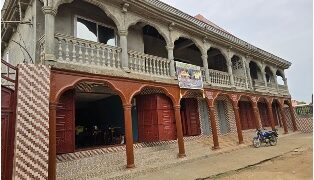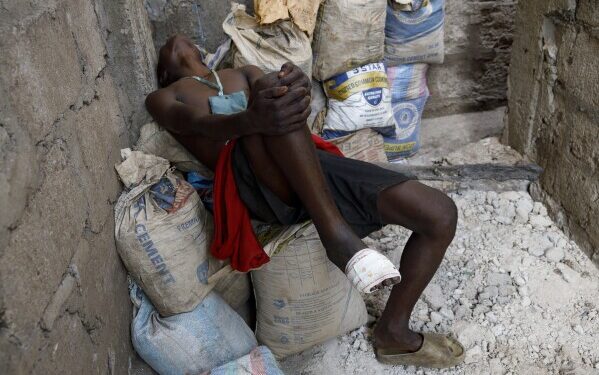By Joseph Samuel Sesay (JSSesay)
The effect on the population
The ravaging effect of drug addiction has posed a significant threat to countries globally, and the fight has been ongoing for ages, leaving many countries socially, culturally, and economically devastated. Drug addiction is an uncontrollable appetite that mostly begins in the adolescent stage of life and leaves children, youths, and mature men and women with mental and psychological disorders, terrible health problems and often death.
Since every nation’s development is a result of human capital (workforce), which in turn relates to the strength and productivity of the population, sustaining population growth and utilising human resources are the most important factors for the sustainable development of an economy. In Africa, there are rising cases of drug abuse, and though many of the cases involve men, cases of women are also on the increase.
Most of the drugs that are consumed are cannabis, cocaine, and ecstasy, and the famous recent epidemic known as Kush has left many homes and families broken, increased violence and crime rates, impeded the workforce, and has overall devastated the economy.
The fight against drugs has been ongoing for so long, leaving the quest to know, ‘How are these drugs smuggled into our nation, where there are security forces on the borders and checkpoints at strategic areas? Because corruption is a human conduct, most of these drugs pass from border to border due to one or more reasons. Illicit drug trafficking is the crucial link in the chain between production and consumption. It is also far and away the most lucrative stage in the process, from the cultivation and processing of the illicit drug to the point of final consumption.
Along the many routes on which illicit drug traffic moves, there appears to be some spillage, partly because of a tendency of traffickers to pay middlemen either through bribery of security officials or other stakeholders or a lack of proper and effective security checkups (maybe through the use of political influences allowing the transportation of these drugs without going through the proper screening in the keys and ports or borders, or maybe as a result of leakages in the borders due to inherent human mistakes or through other means).
This left many questions, such as: Are some law enforcement personnel members of these cartels? Are big officials in governance running this drug league? Are foreign businessmen responsible for smuggling these drugs? Or are the masses playing the game of drugs? Maybe all these parties are involved, or maybe not, but as they normally say, ‘Time Will Tell’.
There are recent incidents where the police of Sierra Leone have apprehended many who were alleged to be drug lords, and there are also records where the police have caught drug dealers and the transportation of Kush and other drugs through checkpoints in the city and rural areas. These efforts of the police have posed a significant threat to many dealing with Kush and other similar drugs.
The economy serves as the most dynamic and intricate engine driving the progress of any nation. The foundation of economic development is fundamentally anchored in the well-being of its population.
In the context of developing countries, a robust framework for managing both human resources and natural assets is essential for sustainability and growth. In Sierra Leone, the devastating effects of the Kush epidemic have significantly undermined the health and stability of the population.
This public health crisis has particularly impacted youth, with many individuals suffering from severe mental health disorders, alongside physical deterioration such as infectious sores and various forms of carcinogenic lesions affecting visible areas like the arms, legs, and face.
The epidemic has led to alarming mortality rates, with reports of numerous deaths across urban centres, major towns, and rural communities.
Research indicates a strong correlation between economic distress and substance abuse, suggesting that rising unemployment rates contribute to a higher incidence of substance use disorders. This is especially evident among working-age populations with lower educational levels, who may face greater economic vulnerability.
Various aggregate-level studies have also explored the link between fluctuating economic conditions and drug-related mortality rates. If the rise in substance abuse is indeed driven by a sense of despair, we can hypothesise that subjective assessments of economic hardship will play a more significant role in influencing trends in substance abuse compared to objective economic indicators.
The early stages of Kush use in Sierra Leone have notably emerged during adolescence and young adulthood, which are critical formative periods for the onset of drug consumption.
Furthermore, demographic data highlights a stark contrast in age distribution between high-income and low-income countries. “According to the Global Overview: Drug Demand, Drug Supply 2021 report from the United Nations Office on Drugs and Crime, individuals aged 15 to 34 comprise about 25% of the total population in high-income nations, while in low-income countries, this age group represents over one-third of the population.”
This demographic reality underscores the urgency of addressing substance abuse issues in developing countries like Sierra Leone, where a larger proportion of the population is at a heightened risk for initiating drug use.
The Kush epidemic presents a significant challenge to the population stability of Sierra Leone, leading to detrimental effects on the country’s economic development. Given that the population constitutes the very foundation for sustainable growth, it is imperative for the government to adopt a proactive stance in addressing this crisis.
This can be achieved through the implementation of stringent law enforcement measures aimed at eradicating the distribution and consumption of Kush.
Robust raids at strategic locations, particularly in urban areas known for high drug activity, must be prioritised. Additionally, strengthening security measures along the nation’s borders is essential to impede the trafficking of this substance.
The battle against drug abuse cannot rely solely on politicians and law enforcement agencies; it is a collective responsibility that calls for the active involvement of all citizens to safeguard the future of our nation.
To effectively combat this epidemic, national policies must be developed that not only target the immediate issues associated with drug abuse but also foster a supportive environment to enhance population growth. This includes implementing educational initiatives that inform the public about the dangers of drug use and providing rehabilitation programmes for those affected.
By prioritising the reduction of Kush intake and other harmful substances, we can protect and nurture our population, ensuring a healthier, more productive society. This, in turn, will lay a stronger foundation for economic development, empowering Sierra Leone to thrive and prosper in a sustainable manner.
The effect on the economy
Sierra Leone, like many developing nations, must harness both its natural resources and its human capital to achieve its Sustainable Development Goals (SDGs). These goals are broadly divided into two categories: sustainable economic goals and sustainable environmental goals. In the current context, the fight against the Kush epidemic, a growing drug crisis, has a more direct and damaging effect on the economic side of development.
From a theoretical standpoint, the widespread use of Kush is shrinking Sierra Leone’s productive population. This decline in human capital is slowing economic growth and undermining national progress. To reverse this trend, the government must prioritise population health and stability by implementing strong policies to reduce drug use and addiction. Protecting and growing the population is essential not just for social welfare, but for economic resilience.
Population Growth and Economic Development
In countries with limited industrialisation and high unemployment, like Sierra Leone, economic growth depends heavily on tax revenue. With low levels of trade, weak entrepreneurial ecosystems, and minimal industrial output, the government struggles to generate sufficient tax income. This often leads to higher tax rates, which can further strain the economy.
However, maintaining and increasing the population can change this trajectory. A larger population drives higher consumption, which in turn stimulates production. This opens the door for new factories, expanded industries, and more job opportunities. As employment rises, so do savings and consumer spending, leading to stronger capital formation and a more vibrant economy. In theory, this cycle can significantly boost Sierra Leone’s economic development.
Drugs and the Hidden Cost of Money Laundering
The economic damage caused by drugs goes beyond population decline. One of the most insidious effects is money laundering, a major barrier to sustainable economic growth. Beyond public health, the Kush epidemic fuels one of the most damaging economic crimes, “money laundering”. Drug cartels distort the economy by misallocating resources, inflating real estate prices, and undermining exports and fair competition. They also discourage foreign investment, fuel corruption, and worsen income inequality.
Illicit drug profits are often funnelled into corrupt businesses, allowing cartels to launder money and generate massive returns. This creates an underground economy rooted in corruption, where legitimate businesses are either pushed out or forced to collaborate with criminal networks to survive. In Sierra Leone, drug cartels reportedly store large sums of cash across the country.
To legitimise these earnings, the money is first deposited into banks, then transferred to offshore accounts to erase its origins. Eventually, it returns to the local economy disguised as clean capital invested in businesses, real estate, or extravagant expenses.
A troubling trend is the use of small and medium-sized enterprises (SMEs) as conduits for these funds. These businesses receive loans or investment from cartel-linked sources, which I refer to as “Money Waiting”, illegal funds poised to enter the financial system. Though not yet laundered, this money is already in motion, quietly infiltrating the economy and undermining its integrity.
To combat the economic fallout of the Kush epidemic, Sierra Leone should strategically implement and strengthen drug enforcement and rehabilitation programmes, invest in youth education and employment, implement financial monitoring systems to detect illicit flows, support SMEs through transparent, legal financing channels and promote entrepreneurship and industrial development to reduce dependency on foreign aid.
Sierra Leone’s sustainable economic future hinges on its ability to protect and empower its population. The Kush epidemic is not just a health crisis: it is an economic emergency. By addressing drug abuse and its financial consequences, the nation can unlock its full development potential and build a more inclusive, prosperous society.
























